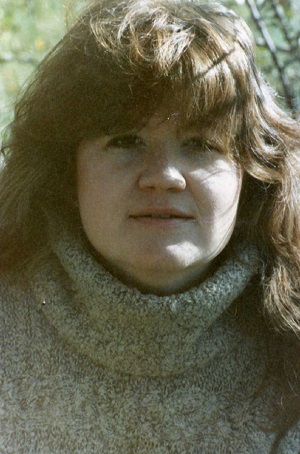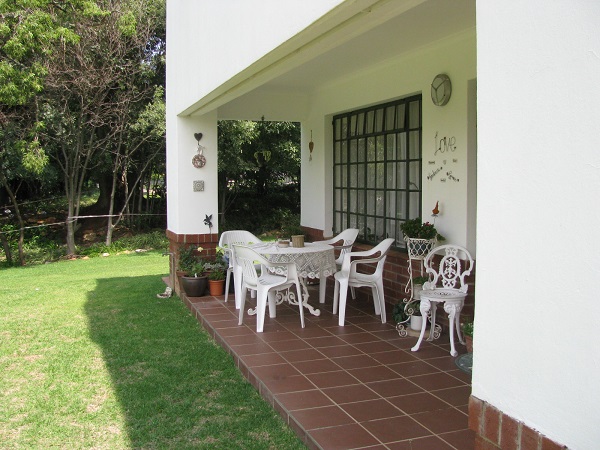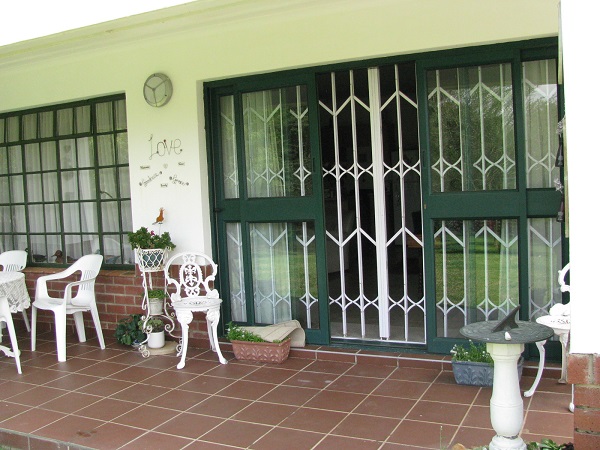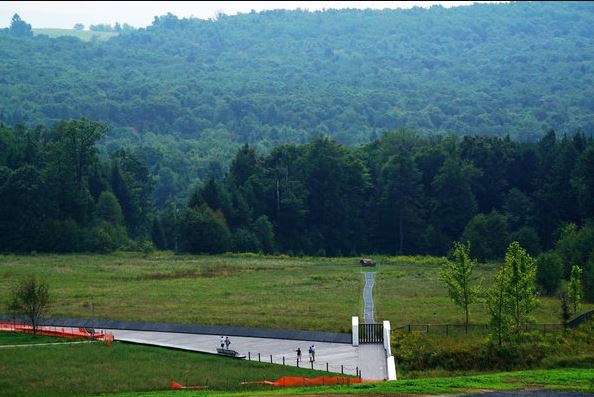So… it’s going to be Zimbabwe II. That didn’t take long.
Every time you think that a country in Africa has a chance, they cock it up again. Idiots.
And for once, the comments in the article have it right.

Sad things, events and people
So… it’s going to be Zimbabwe II. That didn’t take long.
Every time you think that a country in Africa has a chance, they cock it up again. Idiots.
And for once, the comments in the article have it right.
One year ago last night, my wife Connie died of ovarian cancer.
In many cultures, there’s almost a mandatory mourning period of a full year after the death of a loved one, and I now know why. It has to do with anniversaries: “Oh, last year this time we were celebrating something together. This year… I’m doing it alone.” Those add up, and they take a toll on you as that horrible year drags on. But with the merciful passage of time — and it’s true: time does heal the worst of wounds — those little aches, those pangs of shared memories, fade and lose their sting. This year, I’ll remember an occasion from last year and this time, it will involve just me. Not as painful.
I have spoken many times about how my friends all over the world rallied around me and helped me get away from this most personal tragedy, so I’m not going to repeat any of it other than to say that they collectively gave me a reason to carry on living: not that I was going to do something foolish like cap myself, of course, but they got me to do things that helped dull the pain of memory, kept me busy, and above all made me realize that I still have so many things to live for. The alternative was for me to sit in a one-room garret and stare at the walls — which my friends, as they told me in no uncertain terms, were not going to allow me to do. Instead, once I’d taken care of the soul-destroying minutiae of death, I sold the house, traveled, and did the sorts of things which reminded me of the things I hadn’t been able to do before, but could now do. I did those things, and I will do again.
It’s called living. Life goes on after death and now, one year after that most profound tragedy from which I thought I’d never recover, I’ve come out from my period of mourning with renewed purpose, renewed hope for the future, and a renewed determination to live my life to its absolute fullest. That feeling, that intention, is not something that happened suddenly, or just this morning; it’s been a gradual process which began at some point (I have no idea when) and grew stronger and stronger as the year went on.
Now it’s been three hundred and sixty-five days since Connie died, and if you’d told me then that I’d be feeling the way I do today, I’d not have believed you.
Now, at last, I think I’m healed (although of course there may well be the occasional twinge of pain — I’ve felt a few just writing this post). All I needed was to get through the horrible anniversary to put the seal on it, and thanks to the boundless support from my friends, my family and my Readers, I made it.
Now it’s time for adventure, time to live again.
And if you’ll all indulge me, I’m going to continue to chronicle some of those adventures on these very pages. That is the real reason why I started blogging again — there’s no point in having an adventure when you can’t share it with anyone — and it’s only when I wrote this post that I realized it. (And by the way: a huge round of applause for Tech Support BobbyK, without whom I’d be snarled in incomprehensible Gordian techno-knot, and you wouldn’t be reading any of this.)
So stick around: I’m going to drink deeply of Life in the years to come, and you’re going to share it with me. Enjoy the journey, because I most certainly plan to.

In Memoriam:
Constance Mary (Carlton) du Toit
14 May 1958 – 3 February 2017

In an earlier post, I waxed somewhat rhapsodic about the changes I noticed in and around greater Johannesburg. But that’s not the whole story.
What has NOT changed about South Africa over the past thirty years is that you always have to differentiate between standard of living — which remains high, and has improved for countless millions of Black SA citizens since I left — and quality of life, which was bad when I left, and absolutely sucks now.
I challenge anyone in South Africa not to have been a victim of crime, or else not know someone in their family or a neighbor who has. (Even I fall into this category: my own elderly mother was once the victim of an armed home invasion in broad daylight, wherein she had to plead for her life. She was lucky in that they only emptied the place of all her valuables.)
Crime is everywhere. Every house is a fortress of high walls topped with barbed wire or electrified fencing, and every neighborhood has its own (mostly unarmed) security force because the “new” South African Police Service (SAPS, no kidding) are pathetic in their inadequacy and inefficiency. A 911-type call in the case of a violent crime results in a two-hour police response, if any at all. Petty crime such as a bag-snatching or pickpocketing gets an official shrug of the shoulders. Walking alone through even suburban shopping centers after dark is not just perilous, but foolhardy in the extreme — akin to doing the same in 1970s Bedford-Stuyvesant in New York.
In a city blessed with arguably the best climate in the world, you have to drive with your windows closed and the a/c going; and late at night, in just about every neighborhood, a red traffic light has to be treated like a yield sign.
Where I’m staying, in a gated compound, my friend lives in a very pretty townhouse which has this view:

…and has a covered patio:

Out there, you can eat al fresco about eleven months of the year, day or night. Here’s the rest of the picture, however:

That security gate is kept closed day and night, within a gated compound with 24-hour walking guard patrols.
Every store, even in a mall, has a security guard or two at the entrance, all office buildings have airport-style security at the entrances, and parking lots are filled with hi-viz jacketed “minders” who (supposedly) look after your car while it’s parked, for a small fee.
Johannesburg taxi drivers (more of which in another post) have adopted a typically-African response to the competition in the form of the Uber taxi service: if they catch an Uber driver picking up a fare on their “turf”, they shoot the Uber driver dead and “invite” the fare to get into their taxi instead.
That’s crime, and I’m only scratching the surface. Any current South Africans could give you still more, if you have the stomach to ask them — and I’m describing the situation in upper-middle-class Johannesburg suburbs. What it must be like in poorer areas like Soweto or Alexandria must beggar description.
Now let’s talk about government, or what passes for government.
Under apartheid, government was inefficient in a First-World kind of style: endless lines to (say) get a driver’s license renewed, surly bureaucrats behind the counters — anyone who’s recently been to the DMV will be aware of this phenomenon.
Now, the South African bureaucracy has become Third-World style: endless lines, but with no guarantee of a satisfactory resolution.
“Your license is still being processed.”
“When can I pick it up, then?” will be met with a shrug, and
“Next!”
There is no recourse, no appeal, no avenue to seek redress.
A friend of mine qualifies for a British passport, as both her father and her husband were British-born citizens. Unfortunately, the UK bureaucracy demands all sorts of SA “origination” documents (birth certificate, etc.), not all of which she has available. So she applied for the originals or certified copies thereof… nine months ago. And she has no idea when or if she will ever get them — calls to the various bureaus are met with complete ignorance of her request, despite the recital of a “request number” for tracking purposes issued when she made the original request.
Here’s another one. Most of the major highways around Johannesburg are toll roads. There are no toll booths or tolltags issued, however: cameras record the cars’ registration plates, and the owners are billed by mail. Another one of my friends has had over $300 of tolls billed to him, and he just ignores them. To this day, he’s never been harassed by the toll authority.
Another example: a law will soon be passed which makes homeschoolers responsible to the local education authority in terms of curriculum, hours of study, etc. (similar to that of places like New York state). Failure to register would, according to the law, result in an inspector calling on the homeschooler’s house, with the authority to arrest the delinquent parent and place the children in foster care. When I mentioned this to a schoolteacher over here, she just laughed. “The inspector will come out to the house, sleep in the car for a couple of hours and then report to his superior that the homeschooler sent in the registration documents, and they must have been lost in the bureaucracy. By the time the education authority finally reacts, the kids will be at university.”
In a country which used to supply power to the rest of sub-Saharan Africa, South Africa is facing rolling brownouts if not massive, week-long blackouts because the monopoly utility supplier ESCOM has run out of money, has little chance of getting more, and the likelihood of bonds being approved to pour yet more funds into the black hole of inefficiency [sic] is nonexistent, absent the intervention of a foreign state (step forward, China). The money, by the way, is earmarked for maintenance, which has been largely ignored for over twenty years, which is why the electricity supply is on its last legs. So where did the money go?
Silly rabbit, this is Africa. The presence of governmental corruption, which recently resulted in the removal of arch-kleptocrat Robert Mugabe from office just a few hundred miles north, is perhaps even worse south of the Limpopo River.
Getting anything done requires an endless series of “accommodations”, “considerations”, “gratuities” and all the other little euphemisms for bribes. This has percolated down to the lowest level: arrival at a driver’s license testing facility can result in the question: “Test or purchase?” Don’t even ask what happens at higher levels, where the stakes are higher and the sums of money exponentially larger than the R2,000 (about $150) for a driver’s license.
This, I think, is why the economy is improving: it’s because business owners simply ignore the bureaucracy wherever they can, betting (or hoping) that the governmental inefficiency will never catch up to them, or only catch up to them after they’ve made their money; and that they will either be able to pay the fines, or have hidden their money so well that they can survive State-mandated insolvency. Local lore abounds with stories of people who have closed their businesses just short of government inspection, and simply re-opened the businesses under a different trading name, on different premises a day or two later. And even that eventuality might well be avoided by a couple bribes of sufficient size to the right people.
Once again, I’m scratching the surface of the corruption issue — it’s what I’ve learned in only a single week here.
As I write this post, the ruling African National Congress (ANC) is holding elections for a new leader. The previous asshole, Jacob Zuma, was forced to resign because even for South Africa, his incompetence and corruption were too much to bear. His potential successor will be either his ex-wife — rumored to be worse than he is — and Cyril Ramaphosa, a one-time union leader and socialist whose election will probably herald a boom in the Johannesburg Stock Exchange (JSE) and a renewal of confidence from the rest of the world in South Africa’s future. (A one-time socialist is viewed as a potential savior of a capitalist economy. Go figure. But hey, the same could be said for Ossi Angela Merkel; and look how that’s turned out.)
I would like to bet on old Cyril getting the job, but my natural cynicism makes me think that Nkosazana Dlamini-Zuma will win it in a walk.
Because in any situation where the choice is between horrible and unspeakable, Africa always wins.
Some old codger offers advice to some wannabe mercenaries, and I can’t argue with a single thing he says. Sample:
“You’ve got no idea what road you are starting down. Romance and idealism wears off really fast when you’re lying in a pool of your own blood trying to stuff your intestines back into your torn abdomen.”
It’s the thing which sometimes keeps me awake at night: not that I’m the guy on the ground, but that I might be the cause of it.
We are taught the Christian virtue of forgiveness — well, some of us are, anyway. But when you’re faced with some of the most ghastly acts of wanton wickedness, I’m afraid that Christianity needs to take a temporary vacation while we root out pure evil. Here’s a brief reminder, lest we have forgotten:



Kill them. Kill them all, whether they’re Al-Qa’eda, ISIL, Muslim Brotherhood, Boko Haram, whatever they want to call themselves — kill them all.
Then, when these barbarians have been removed, we can get back to building civilization.
I note that conservative activists are leaving California in ever-greater numbers, and while I understand the impulse that makes people want to stay and fight, I sympathize more with those who have given up California as a lost cause and just want to get back to living in freedom.
I left Chicago for precisely those reasons.
I note that one of the conservative folks in the article landed up in McKinney, which is just a town or so over from my adopted home of Plano, TX. This is a good thing. As more and more people are discovering the joys of living in a conservative, well-planned and -managed area, it’s inevitable that the creeping cancer of liberal asswipes are also going to infiltrate the place; so it’s good to get a few firebrand gun-lovers (like, errr, myself) moving in to maintain the conservative imbalance, as it were.
I note with some alarm that Hillary Bitch Clinton got more than a few votes in our voting district, which meant that the outstanding Rep. Sam Johnson (PBUH) only squeaked in with 62% of the vote — his lowest margin ever, as I recall. (To put this in perspective, the next district north of us went 78% for Trump.)
So to all conservative Californians of that ilk — please come on over: Plano, McKinney and Allen will welcome you with open arms. And I bet you’ll just love the indoor range in Frisco (not the cesspit y’all know in the north of CA, but a good conservative town). This invitation is especially aimed at those Loyal Readers who are marooned in a rising tide of Blue liberalism — you know who you are.
Screw California. Let the place circle the bowl and sink without a trace. And if, in terms of the heading of this post you’re called “rats”, let me remind you that it’s the rats who first leave a sinking ship. You’ve done your bit as much as you could; now come and relax in freedom’s welcoming arms. Oh, and speaking of arms: you can ditch those stupid California-compliant semi-automatic rifles; we prefer the real thing here.
